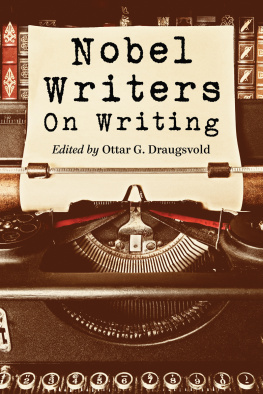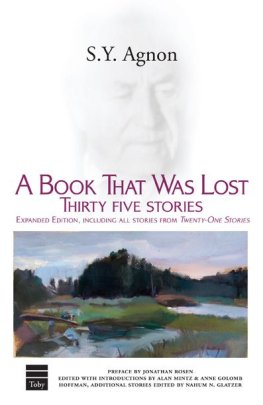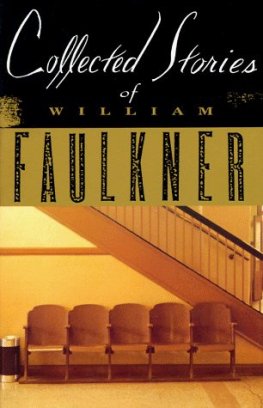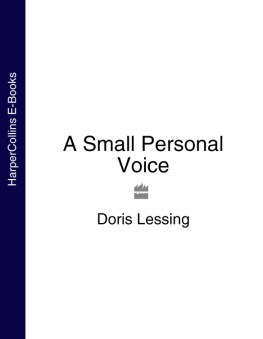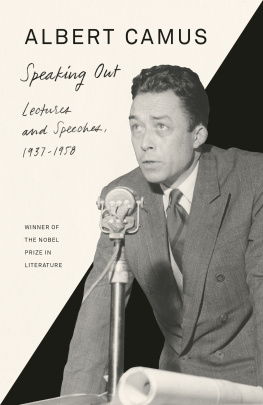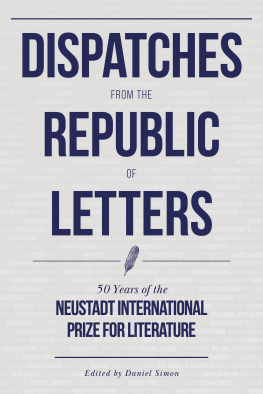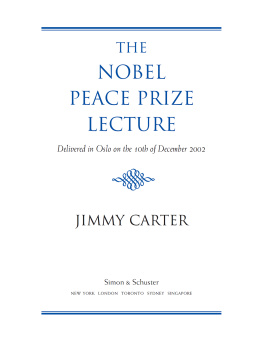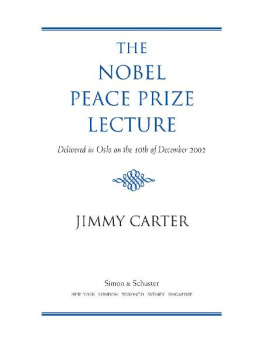
For Joanna
Nobel Writers on Writing
Edited by
OTTAR G. DRAUGSVOLD

McFarland & Company, Inc., Publishers
Jefferson, North Carolina
The present work is a reprint of the library bound edition of Nobel Writers on Writing, first published in 2000 by McFarland.
LIBRARY OF CONGRESS CATALOGUING DATA ARE AVAILABLE
BRITISH LIBRARY CATALOGUING DATA ARE AVAILABLE
e-ISBN: 978-0-7864-6609-2
2000 Ottar G. Draugsvold. All rights reserved
No part of this book may be reproduced or transmitted in any form or by any means, electronic or mechanical, including photocopying or recording, or by any information storage and retrieval system, without permission in writing from the publisher.
Front cover design by David K. Landis (Shake It Loose Graphics)
McFarland & Company, Inc., Publishers
Box 611, Jefferson, North Carolina 28640
www.mcfarlandpub.com
Acknowledgments
The speeches for 1968 through 1990 appeared in full in Nobel Lectures: Literature 19681980 and Nobel Lectures: Literature 19811990, published by World Scientific Publishing Company, Ltd. The excerpts in this book are reprinted with permission of World Scientific Publishing Company and the Nobel Foundation. I wish to thank Ms. Kim Tan of World Scientific Publishing for providing copies of the speeches from 1968 through 1990.
Dr. Henry Singer of the American Nobel Committee was very helpful in the initial stages of research for this book. I greatly appreciate his giving spirit and good advice.
Ms. Kristina Fallenius of the Information Department of the Nobel Foundation has been a source of much needed information throughout the preparation of the manuscript for this book. It seemed no matter how obscure the question, she was able and willing to provide accurate information in a timely manner. I am grateful for her help.
My wife, Joanna, served as first reader and copy editor for the preparation of the materials in this anthology. The final form of this book is, in large part, a tribute to her persistence.
Preface
Fiction may be nothing more than an amusement, like television, movies, bowling, or bridge, something to fill the hours with passing interest. Reading can perform a cathartic function as an imaginative release from an odious reality. Sometimes the written word provides entry into worlds where profound meaning can be intuited. Great fiction and poetry fills all three roles for, Fiction does not give us only what we want; more importantly, it may give us things we hadnt even known we wanted.
The treasures uncovered in great reading often come piecemeal, as if the reader were digging deeper with each new experience of fiction. The process is cybernetic. A developing reader engaged with great writing changes with each exposure as he or she pursues the essential truths of fiction. Some insights arrive with a staggering suddenness. Others may percolate for years before rising to the surface. Defining the intrinsic rewards of great reading, however, becomes illusive. Walter Kerr describes:
We must be prepared, after all of our preliminary sacrifice, to come away empty handed, with nothing left to us but a memory of delight, an increase in wellness so deep and so central and so invisibly distributed throughout the psyche that it cannot even be located, let alone measured and codified for a future use.
The intention of this anthology is to make the works and insights of many of the great writers of the twentieth century more accessible to the next centurys readers. As Mark Twain wrote, The man who doesnt read good books has no advantage over the man who cant.
The list of Nobel Laureates in Literature is a good place to begin looking for such life changing passages. These men and women created new worlds with bare words so enticing that they lead us like native guides into unexplored territory. We become actors in their dramas, created from a literary tradition that stretches back to our pre-literate ancestors. The vibrancy of their voices ensures that their works will continue to be read as long as our language survives. The staying power of these writers also recommends their works to current writers who wrestle with voice, texture, dialogue, pace, characterization, plot, syntax and the myriad of other elements that constitute the writing of literature.
Academics have tended in recent years to rope off the works of great writers with no trespassing signs, treating vivid, living writing as a private wine cellar, reserved only for those who are initiated and installed as its stewards. Readers without special credentials are discouraged from gazing upon these sacred texts, much less venturing an opinion on such holy relics. Its as if the great poets and storytellers toiled exclusively for an audience of university professors. This miserly thinking renders great writing inaccessible to its intended audience. Joseph Campbell, the eminent twentieth century mythologist, described the impact of such reductive thinking: We are looking for an experience of life but were shoving ourselves off the experience by naming, translating, and classifying every experience that comes to us. Professors of literature name, codify, and classify according to their own arcana. After such autopsies are complete, what had once been pulsing organic matter (wrenched from the creativity and soul of the writer) is transformed into a desiccated carcass.
With the exception of Henri Bergson, none of the Nobel writers included in this collection were academic intellectuals. They occupy a different, less contentious space, one that accepts intellectualism for what it is: a piece of the human experience that offers an incomplete view of the whole. Reading great fiction means to experience poetry, words, images that jump at the right moment, that break open old worlds with surprise, abrasion and pace The analysis of great works by academic intellectuals is no substitute for the fresh reading of the works themselves. The call of stories reaches deep into the heart and soul of each reader.
Writing is a solitary life. Seclusion allows eccentric realms of the personality to flourish, free from controls imposed by teamwork and cooperation, allowing writers to be more themselves than most of us. The compulsion and self-discipline of writing turn authors continually inward, making them less tractable than other people. Some use the occasion of the Nobel Prize to focus a spotlight on a worthy, but little known, area of fiction. Many answer the critics who previously condemned their work. The social role of the writer and its perils (from the threat of censorship to imprisonment) absorb others. Most allude to a personal impetus that inspired their work and ultimately placed them on the rostrum in Stockholm.
The approach of each laureates address exposes a fragment of his or her artistic vision. There is no reason to expect that a solitary poet, playwright or novelist who has chosen to work in the mystical world of fiction would be a good speaker or be adept at constructing a cogent lecture. To many, receiving the Prize was both strange and painful ground on which to speak of their deepest concerns. An artist blindly follows his nose with hands outstretched, and only after he has struck the rock and brought forth the form hidden within it does he theorize and explain what is forever inexplicable. I have edited their presentations only to pare down length and discard dated material. (This collection is not intended to reprint the speeches
Next page
